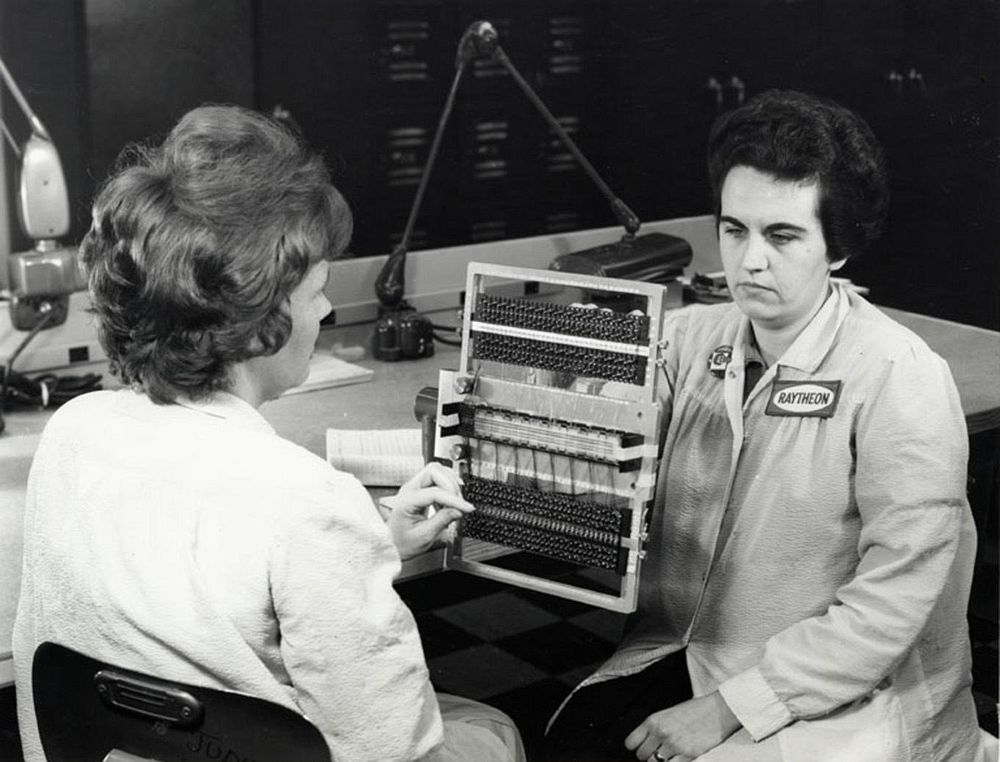History is written by the victors. It’s a cliché that I don’t think we’ve correctly internalised as a society: “victors” conjures up images of war, a narrow form of victory in a single event, a finite game. It should read that history is written by the powerful; those who get the upper hand in the infinite game that is human society get to control the ongoing narrative.
One of the crucial aspects of that narrative is who we choose to celebrate. Mostly, that seems to be individuals, and mostly individual men, the people who take credit for having the big ideas – rather than the people who do the endless, tireless, and thankless work to make those ideas a reality. These shepherds of the creative process – from editors to project managers to the wives of academics – are often women, often ethnic minorities, and always under-recognised. As we collectively choose more consciously who to celebrate, we’d do well to direct some recognition their way.
— Rob
P.S. If you enjoy these weekly posts, please consider forwarding them to someone else who you think might find them interesting!
This week’s article
In praise of the idea shepherds
What Shakespeare’s friends and textile manufacturers in a 1960s factory have to tell us about creativity, power, and who we collectively choose to celebrate.
Click here to read the article »
This week’s four interesting links
Jeff Bezos Is Not My Astronaut
Scott Galloway unleashes an appropriately vituperative take on Jeff Bezos’s bulbous, compensating-for-something “cocket”:
“Astronauts, my ass. Apollo 11 and Columbus travelled 240,000 and 3,000 miles to reach the moon and Caribbean, respectively. New Shepard 4 traveled 0.026% of the way to the moon. Put another way, on Tuesday we watched a man plant a flag three feet up from base camp at Mt. Everest and expect to be knighted. This weekend, I’ll be in Montauk. I plan to swim a half-mile from shore (I can do this) and declare I’ve discovered Spain.
“It’s his money, and he has the right to spend it on what he wants. But if Mr. Bezos was genuine about doing something more than crashing a canary yellow T-top Corvette into a Bosley for Men franchise, he could raise the minimum wage at his firm to $20/hour.”
(H/T: Max Bray) #
The Untold Technological Revolution Sweeping Through Rural China
In this review of Xiaowei Wang’s Blockchain Chicken Farm, Clive Thompson explores the bewildering, empowering, and alienating forces of technology that are shaping rural China as the country grapples with a deeply cloven urban-rural divide, massive and continuing urbanisation, and the question of how to feed an ever-growing population. The future is here, and not everyone benefits:
“Wang also finds that, for rural China, tech-propelled business models can produce the grim dynamics of the gig economy, where a far-off tech giant runs your life. The blockchain chicken software? It’s nifty, but the farmer neither understands the technology nor owns it; it’s provided by a tech firm that in the first year of their collaboration ordered 6,000 chickens in advance to sell off to an online supermarket, and in the second year, nothing. Meanwhile, those Taobao villages also contain some embittered merchants who hate the e-commerce platform, because it allows buyers to demand refunds long after they’ve received their goods. One shoemaker has lost so much money this way that he’s forced to make lower- and lower-quality shoes to keep his profits up. ‘It’s all a scam,’ he says.”
Does X cause Y? An in-depth evidence review
Holden Karnofsky, founder of the GiveWell project, explains why the question “does X cause Y?” is trickier than you might think. #
How TV Went From David Brent to Ted Lasso
James Poniewozik writes of a cultural shift, particularly on TV and within that particularly in comedies, from a sort of detached irony – exemplified by The Office – to a sincerity and warmth.
I’ve certainly found myself recognising this, falling deeply for shows like Schitt’s Creek, Detectorists and – the example that Poniewozik uses – Ted Lasso. They’re shows that are warm, character driven, full of heart. I don’t think it’s about a rejection of irony per se, and certainly not a return to old ways of doing things. These shows aren’t naïve or earnest. I think it’s more of a synthesis of two eras, something that only could have happened now – but I like it a lot. #
